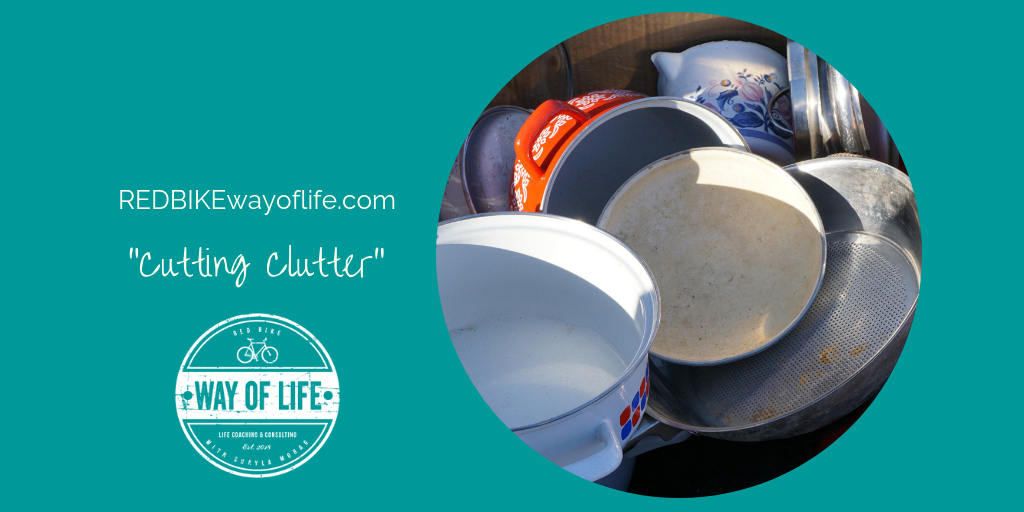
by Shayla Morag | Oct 16, 2019 | Caregiving, Handy Tips, Health, Support, The Red Bike Way
As a caregiver, it is important to be aware that fiber intake is the key to successful aging according to a recent study from Australia. Seniors with the highest intake of fiber had an almost 80% greater chance of living a long and healthy life.
Even the scientists were surprised by the results. Fiber had a greater impact than any other dietary factor they studied, including sugar consumption. Adults who ate more complex carbohydrates significantly lowered their risk for hypertension, diabetes, dementia, depression, and disabilities.
If you want to live a longer and enjoy a more active life without eating like a rabbit, study these practical tips. You’ll learn new facts about fiber and how to include more roughage in your diet.
Facts about Fiber
1) Understand your needs. The average North American eats about 15 grams of fiber a day, which is far below the recommended levels. Individual requirements decrease slightly with age, and vary from a minimum of 21 to 25 grams for women and 30 to 38 grams for men.
2) Cover both bases. Fiber comes in two forms, soluble and insoluble, depending on whether it dissolves in water. Soluble fiber lowers cholesterol and protects your heart. Insoluble fiber enhances your digestion and helps you stay regular. Eating a variety of foods provides enough of both.
3) Know the benefits. Foods rich in fiber make you feel full with fewer calories so you can manage your weight. They also help you stabilize your blood sugar and reduce your risk for certain cancers, heart disease, and diabetes.
4) Take it gradually. Give your digestive system time to adapt to more fiber. Add about 2 to 3 grams a week to avoid bloating and diarrhea.
5) Drink more water. Drinking plenty of water will maximize the digestive benefits of fiber, and minimize constipation and gas. Stay hydrated around the clock.
Eating More Fiber
1) Breakfast hearty. It’s easier to take in more fiber when you start early. Prepare a bean burrito or whip up a smoothie with kale and fresh fruit.
2) Adjust the menu. Bulk up the dishes you love with a few simple tweaks. Stir shredded cabbage or carrots into chili and meatloaf. Top off your pizza with mushrooms and onions. Sprinkle a cup of beans into your salad.
3) Switch to whole grains. Trade in ultra-processed white bread and rice for their healthier versions. Order brown rice when you’re eating out. Make sandwiches with whole wheat wraps.
4) Cook fast. Some cooking methods, like boiling, rob vegetables of fiber and important nutrients. Steaming or microwaving will let you enjoy all their goodness.
5) Bake at home. You don’t even have to give up cookies and cake to make room for fiber. Rely on your own oven instead of supermarket brands so you can use ingredients like oats and whole wheat flour.
6) Keep the peels. Stop wasting apple and potato skins. Many vegetables and fruits have edible peels and seeds packed with fiber.
7) Snack smart. Use snacks as well as meals to help you reach your fiber goals. Dip raw vegetables into hummus. Create a trail mix with dried fruit, nuts, and seeds.
8) Read labels. Manufacturers know that consumers are looking to eat more fiber. Check the label to see how many grams a product really contains. When an item says it’s an excellent source of fiber, it must contain at least 5 grams per serving.
The verdict is clear. Fiber can help manage weight now, and help protect from heart conditions and other diseases with the aging process. To help reach the golden years with fewer health issues and higher functioning, eat more complex carbohydrates like vegetables, nuts, breads, and fruits.

by Shayla Morag | Dec 04, 2018 | Cutting Clutter, Handy Tips, Stress Management, Support, The Red Bike Way
You can move clutter around or you can cut it off at the source. Instead of buying new storage containers or calling Goodwill for a pickup, take a look at your shopping habits. Imagine how much more you can enjoy your weekends and paychecks when you break the cycle of excess consumption. Take a look at these strategies for bringing less clutter into your life.
1) Buy what you need. Ask questions before you complete your purchase. How will you use the product you’re considering? Do you already have enough similar items at home?
2) Focus on quality. In the long run, higher priced goods usually offer greater value. A fine cashmere sweater or sturdy kitchen knives may hold up for decades while bargain brands may need to be replaced annually.
3) Stick to a budget. Decide in advance how much you can afford to spend. Regard occasional indulgences as an exception rather than the beginning of a habit.
4) Find other outlets. Retail therapy may be masking other issues. Find a hobby or do volunteer work if you’re bored. Talk with a friend if you’re feeling anxious or lonely.
5) Swap things out. During holidays and other shopping seasons, try discarding at least one item to make room for each new purchase. Give your used computer to a local nonprofit. Sell your old bedroom set on craigslist, Kijiji, or Facebook.
6) Buy for others. Studies show that spending money on others makes us happier than purchasing things for ourselves. Similarly, buying experiences instead of merchandise leaves no trail except for the pictures on your phone.

by Shayla Morag | Nov 15, 2018 | Change, Self Care, Support, The Red Bike Way
Roughly half of marriages in North America end in divorce. Most people understand the risks that marriage brings, but no one gets married with the expectation of dealing with divorce. Divorce ranks as one of the most stressful situations anyone can go through. Dealing with a divorce is no small matter. It requires patience and stamina. There are no shortcuts.
That doesn’t mean that the process of getting over a divorce requires a decade. How long it takes is largely up to you. There is a path out of your current pain. Time is an important part of that path.
These tips will help you move on after your divorce:
1. Give yourself time before dating again. How much time you require is an individual decision. But there’s no rush. When you begin dating before you’re ready, not only are you potentially creating additional challenges for yourself, but consider your dates, too! They might be getting more than they bargained for. Take the time you need to heal.
2. Take the opportunity to make over your life. Now might be the perfect time to join a gym, start a new hobby, or travel. When you’re married, you have to accommodate the needs and wishes of another person. You can give yourself more consideration for a change.
- What would you like to change about yourself and your life?
3. Learn from your divorce. What went wrong? What did you learn? What were the good and bad qualities of your partner? What type of person would do you believe would be the best match for you? What mistakes did you make along the way?
4. A divorce is painful, but a great learning opportunity. You can have much more confidence in your next relationship if you use what you learn.
5. Forgive. You can’t truly move on until you’ve forgiven your ex-spouse. This may take time. But you’re never really free until you’re able to forgive.
6. Get the support you need. This might take the form of a friend or family member. There are also support groups for the newly divorced. Avoid the mistake of attempting to navigate your healing process alone.
7. Maintain your daily routines. This means to continue to bathe, brush your teeth, and so on each day. Continue to eat healthy meals. Go to bed at your normal time. Keep your normal social outings. It’s easy to fall into a slump and to allow the quality of your life to deteriorate. Some things will change, but many things can stay the same.
8. Avoid making your situation worse. This isn’t the time to over eat, drink excessively, or start using drugs. A rebound relationship also isn’t advised. Get your feet back on the ground and avoid doing anything that can make your challenging circumstances ever harder.
9. Get out of the house. Not only can you keep your previous social schedule, you can consider adding to it. Join a yoga class or a golf league. Create something new that you can enjoy with others. You won’t find any solutions while you’re sitting on the couch, staring out the window.
10. Share your feelings with a divorced friend. It’s important to talk to someone who has had the same experience. Confide in someone that has successfully moved on from divorce.
Divorce is stressful and unsettling. You’re certainly not alone. Give yourself time to grieve and heal. In time, your life can be even better than it was before. Use this opportunity to reinvent yourself and your life.

by Shayla Morag | Mar 22, 2018 | Caregiving, Handy Tips, Patience, Self Care, Support, The Red Bike Way
Being a caregiver can involve having a lot of patience. Patience is the ability to tolerate delay without frustration. Those with patience are able to remain calm and avoid impulsive action when faced with challenges. Being impatient has little to offer. The line at the store is impervious to your thoughts and emotions. If you’re stuck, you may as well enjoy yourself. Patience is beneficial to your health, happiness, relationships, and goals. Impatience is costly.
Consider these important benefits to having patience:
1. It’s easier to be happy when you’re patient. Impatient people are not experiencing positive feelings. Having patience reduces stress and anxiety. Challenging situations are more manageable when the situation can be approached with patience.
Has being impatient ever benefitted you? How do you feel when you’re impatient? Are you stressed? Happy? Uncomfortable? Are the patient people you know more or less happy than the impatient people you know?
2. Patient people are healthier. The stress that impatient people feel is hard on the mind and body. Those that feel less stress suffer from fewer medical issues. Heart conditions, ulcers, and many other health conditions are made more serious by stress. You can potentially live longer and enjoy yourself more if you’re patient.
3. You can accomplish larger goals. Big goals require time. Time requires patience. Big goals are impossible without some measure of patience. Consider how your impatience has short-circuited your success in the past.
4. Some things are outside your control and patience smooths the journey. Overcoming an illness or injury can’t be sped up by sheer will or impatience. A pregnancy requires a certain amount of time. Getting over a personal loss or tragedy takes time. Losing several pounds can’t happen overnight.
5. You’ll make better decisions. Impatient people don’t take the necessary time to make wise decisions. Impatient people are stressed, and stressed people tend to be impulsive. Patience provides the time and space to contemplate the situation and make a wise decision.
Make a list of the times when impatience has cost you. Consider your personal relationships, work, and finances. Impatience leads to poor decisions. Remind yourself of those times you’ve made your life more challenging by being impatient.
It’s possible for anyone to develop patience. Follow these steps:
1. Set short goals. For example, attempt to spend the next hour being the most patient person you’ve ever known. Avoid letting anything bother you during this period of time. Extend the time as you’re able.
2. Pause before everything you say and do. Do you want to get off the couch and raid the refrigerator? Make yourself wait 15 minutes. Are you ready to interrupt a conversation to make yourself heard? Wait until the conversation has concluded before speaking. Slow down and practice patience at every opportunity. The average day will provide plenty of practice!
3. Determine when you’re least patient. When do you find yourself unable to control yourself as well as you’d like? Focus your attention on these trouble spots. Aim for slow, steady progress. Avoid expecting perfection or making too many demands on yourself. Slow and steady wins the race.
4. Notice your thoughts when you’re impatient. What do you think about when you’re feeling impatient? Notice your thoughts and change them. You can choose to think about anything you’d like, so think about something that encourages you to be patient.
Patience is a character trait worthy of cultivation. Many confuse patience with weakness or passivity. But patience is an intelligent reaction to a situation that’s outside the realm of control. Impatience can be unhealthy, create additional challenges, and make you miserable in the process. Which do you choose?

by Shayla Morag | Jan 23, 2018 | Comfort, Grief, Handy Tips, Support, The Red Bike Way
Sadly I have had a few friends lose their beloved pets in recent months. The loss of a fur baby can be very traumatic. For many people, pets become members of the family. We have a little toy poodle named Beethoven who is very much apart of the family. Being there to listen and sending a sympathy e-card to a friend or a loved one when their pet passes away can offer care and comfort during a difficult time. Check out Your Dog Advisor site for thoughtful gift ideas.






